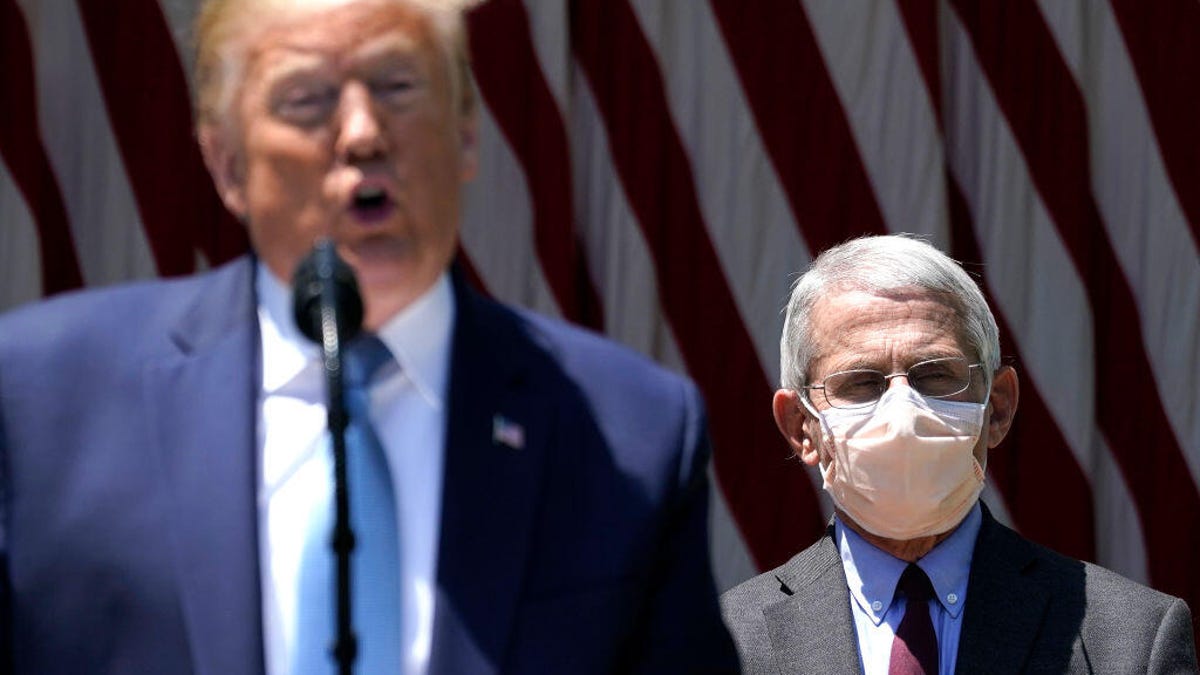Fauci warns against thinking coronavirus pandemic is nearly over
The director of the National Institute of Allergy and Infectious Diseases also wasn't surprised President Trump got COVID.

Dr. Anthony Fauci "was worried" that President Donald Trump was going to contract COVID-19, he told 60 Minutes.
With more than 8 million COVID-19 cases in the US and vaccines unlikely to be widely available until 2021, Dr. Anthony Fauci told CBS News' 60 Minutes on Monday that we can't start thinking that the end of the coronavirus pandemic is in sight.
"When you have a million deaths and over 30 million infections globally, you cannot say that we're on the road to essentially getting out of this," he said. "So quite frankly, I don't know where we are. It's impossible to say." (Disclosure: CNET is owned by ViacomCBS, which also owns CBS News.)
Fauci, the director of the National Institute of Allergy and Infectious Diseases, said he wasn't surprised when President Donald Trump contracted the virus earlier this month.
"I was worried that he was going to get sick when I saw him in a completely precarious situation of crowded, no separation between people, and almost nobody wearing a mask," he said, in reference to a Sept. 26 Supreme Court nomination ceremony at the White House. "When I saw that on TV, I said, 'Oh my goodness. Nothing good can come outta that, that's gotta be a problem.' And then sure enough, it turned out to be a superspreader event."
Fauci also clarified Trump's suggestion during his first debate with Democratic rival Joe Biden that the doctor had flip-flopped on the importance of masks in slowing down the spread of the virus, which spreads mainly through respiratory vapor.
See also: These are the best face masks for exercise in 2020
"It became clear that cloth coverings … and not necessarily a surgical mask or an N95, cloth coverings, work. There's no longer a shortage of masks," he said. "Number two, meta-analysis studies show that, contrary to what we thought, masks really do work in preventing infection."
The coronavirus that causes COVID-19 can linger in the air, and this can play a role in transmission, even for those who are further than six feet apart, the US Centers for Disease Control and Prevention said earlier this month.
Health officials continue to encourage people to wash their hands regularly, wear a mask when out in public, practice social distancing and avoid close contact with people who are sick.
People who've been in contact with someone who's tested positive for COVID-19 should contact their doctor or local health care provider. The CDC recommends getting a coronavirus test if you're experiencing symptoms of COVID-19, if you've had close contact with someone -- within six feet for at least 15 minutes -- with a positive COVID-19 test, or if you've been asked by your health care provider to get a test.

